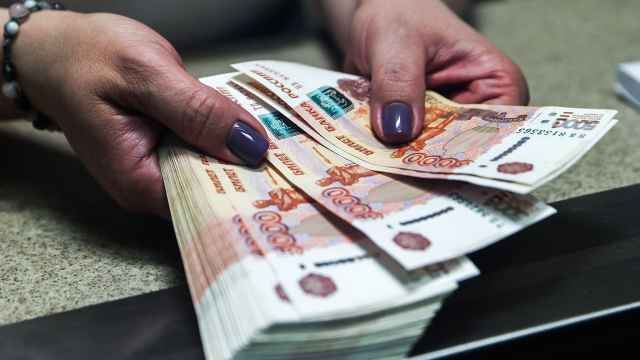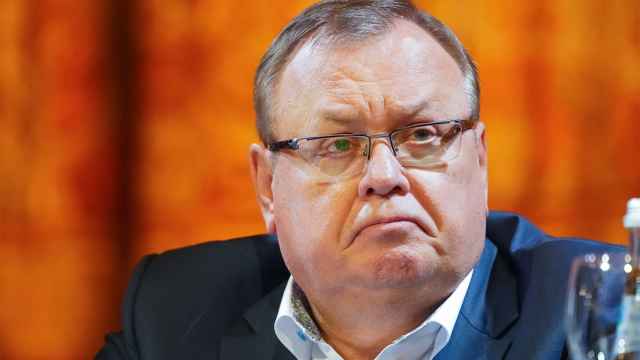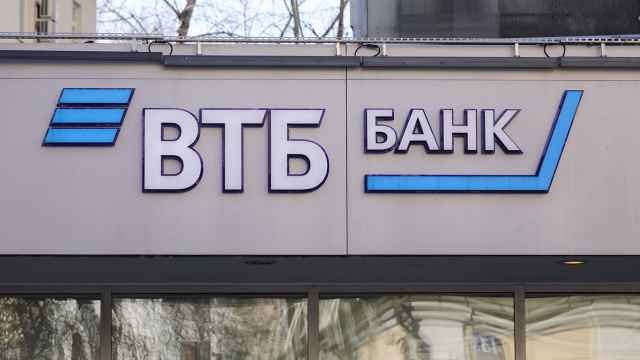Russian state-owned bank VTB has reported a growing share of overdue retail loans, the bank’s chief financial officer told journalists Tuesday.
The proportion of non-performing loans (NPLs), those overdue by more than 90 days, in the bank’s portfolio climbed to 4% in May compared with 3.9% in April and 3.5% at the end of 2024.
According to CFO Dmitry Pyanov, the majority of NPLs are from individual borrowers.
Overdue loans within the corporate lending portfolio rose to 3.5% in May, a marginal increase from 3.4% at the end of 2024.
This change included what the bank described as a significant NPL component from the coal industry, which has faced severe struggles in recent months.
Meanwhile, the NPL ratio among individual clients increased more sharply, reaching 5%, an increase from 3.8% at the end of last year.
“The absence of a dilution effect and the run-off of the portfolio, combined with the underperformance of loans issued during periods of high interest rates, has contributed to the rise in the NPL ratio for individuals,” Pyanov said, referring to the Central Bank’s 20% key interest rate.
“Unfortunately, this trend is likely to persist,” he added.
VTB indicated it would continue reducing its retail loan portfolio, and as this portfolio contracts, the share of overdue loans is expected to continue rising.
Pyanov said that “a 5% share of bad loans is already approaching the 7% level seen in 2009. The historical peak for the bank’s NPL ratio among individual borrowers was between 2014 and 2016, a period marked by difficulties with foreign currency mortgages.”
“However, the current level has not yet reached the 8 to 10% seen during those years,” he said.
If present trends continue, Pyanov cautioned, the share of non-performing loans in the retail segment “could easily reach 6 to 7% by 2026.”
He acknowledged that the bank had underestimated credit risks on loans issued in 2023 and 2024.
“We projected a lifetime cost of risk at approximately 3.5 to 4.5% for retail loans,” he said, “but now expect this figure to rise to around 6%,” Pyanov added.
The situation remains more stable within the corporate lending market. There has not been significant growth in overdue loans among business borrowers, and the proportion of restructured loans is relatively low.
According to Pyanov, “3% of the corporate portfolio is currently under restructuring, compared with record levels of 11.8% in 2009 and 11% at the end of 2022.”
For now, “NPLs remain stable, though certain sectors such as coal and construction are under greater strain,” he said.
“The banking sector could be at a turning point regarding key interest rates, which may help relieve financial pressure on these industries in the future,” he said.
Sberbank CEO German Gref also noted a decline in portfolio quality, with an increasing number of companies seeking loan restructuring.
Deputy Central Bank Governor Alexei Zabotkin said the Bank’s board of directors could consider a more substantial interest rate cut at its July meeting than in June, when it lowered the rate by one percentage point to 20%.
Despite rising retail risk, VTB continues to expand its corporate loan portfolio. By the end of May, its overall loan portfolio before provisions reached 23.8 trillion rubles ($300 billion), a 0.4% increase both in May and since the beginning of the year.
Loans to businesses totaled 16.3 trillion rubles ($200 billion), rising by 0.8% in May and by 2.3% over the first five months of the year.
Retail lending, in contrast, contracted by 0.5% in May and by 3.6% over the first five months of 2025. As of May 31, the retail loan portfolio stood at 7.5 trillion rubles ($95 billion).
The share of retail loans in the bank’s total credit portfolio declined to 32% from 33% at the end of 2024.
Deposits and other client funds held by individuals grew by 0.8% in May and by 4% since the beginning of 2025, reaching 13.5 trillion rubles. In contrast, funds from legal entities dropped by 4% in May and by 8.9% since the start of the year, totaling 12.7 trillion rubles ($160 billion).
VTB previously announced it would pursue a strategy in 2025 of focusing resources on more profitable corporate lending while reducing unsecured consumer loans.
A Message from The Moscow Times:
Dear readers,
We are facing unprecedented challenges. Russia's Prosecutor General's Office has designated The Moscow Times as an "undesirable" organization, criminalizing our work and putting our staff at risk of prosecution. This follows our earlier unjust labeling as a "foreign agent."
These actions are direct attempts to silence independent journalism in Russia. The authorities claim our work "discredits the decisions of the Russian leadership." We see things differently: we strive to provide accurate, unbiased reporting on Russia.
We, the journalists of The Moscow Times, refuse to be silenced. But to continue our work, we need your help.
Your support, no matter how small, makes a world of difference. If you can, please support us monthly starting from just $2. It's quick to set up, and every contribution makes a significant impact.
By supporting The Moscow Times, you're defending open, independent journalism in the face of repression. Thank you for standing with us.
Remind me later.






